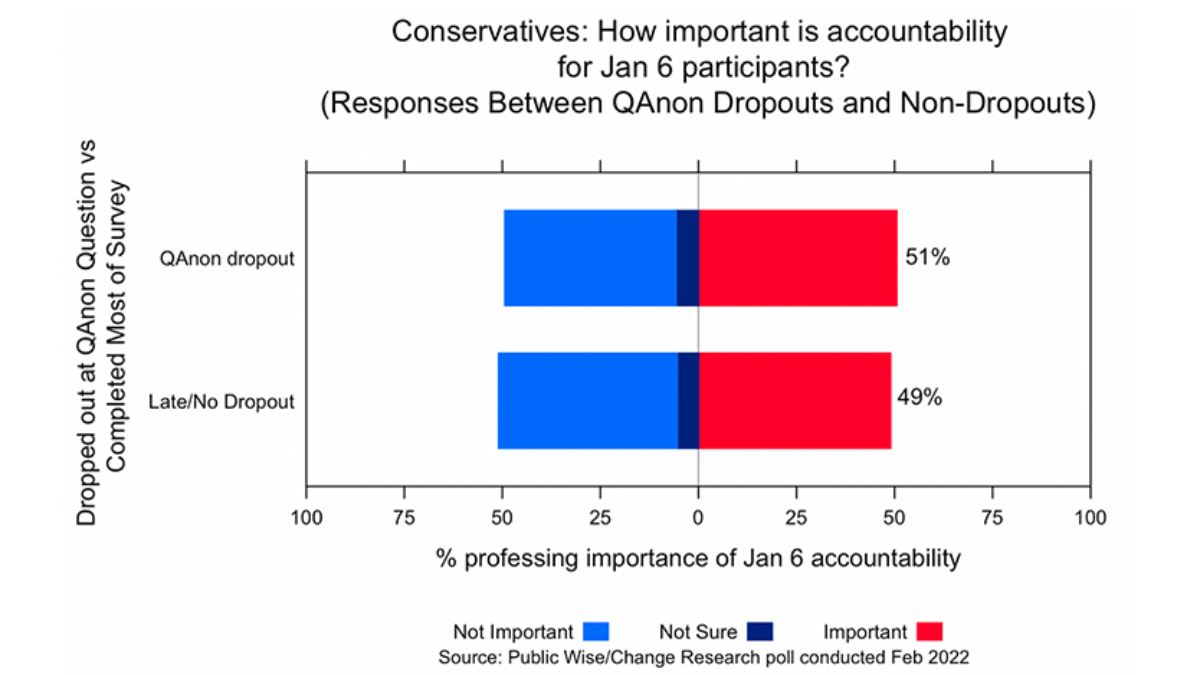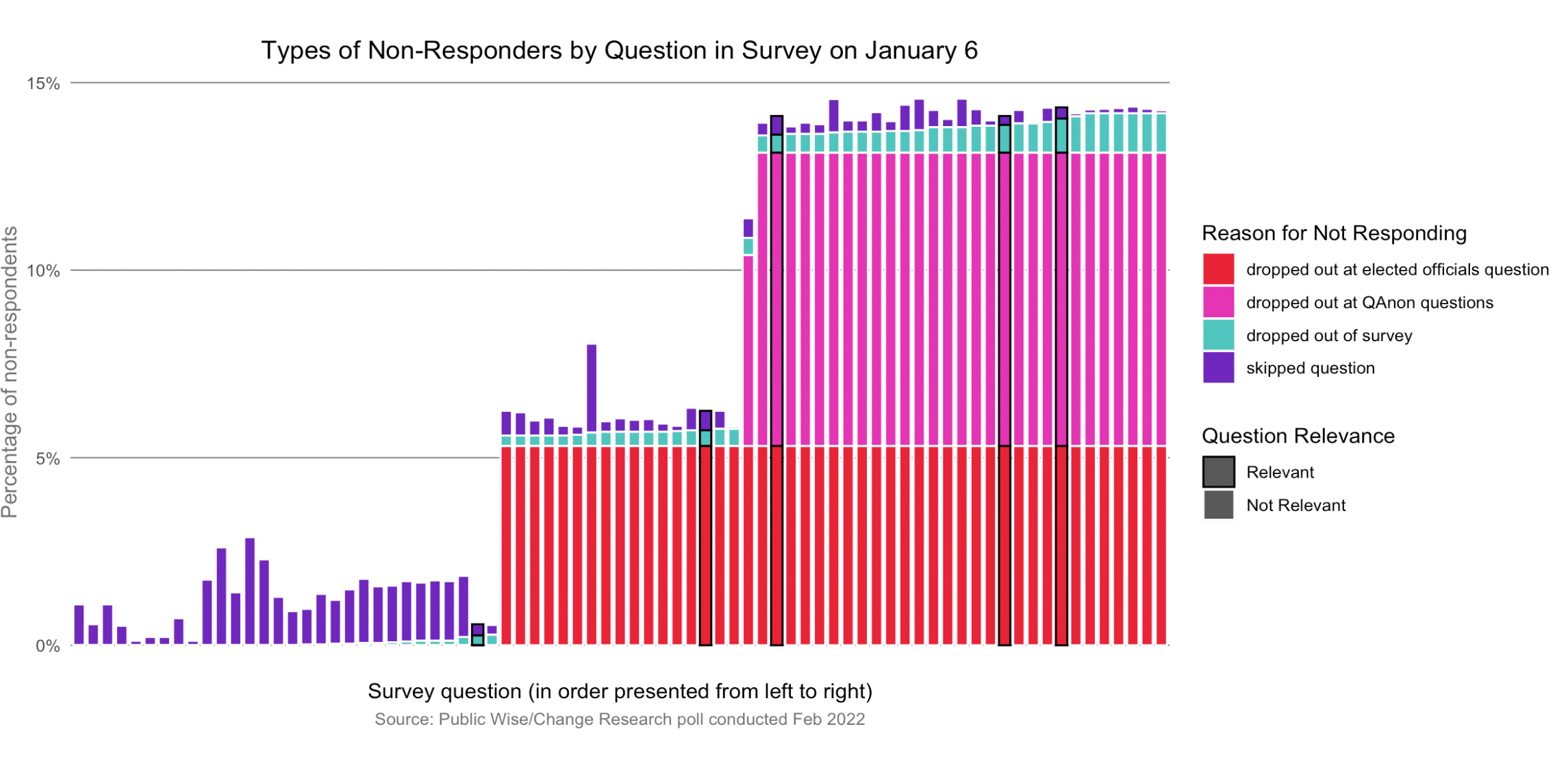Anti-Establishment Views and January 6th
Thinking accountability for Jan 6 insurrectionists is not important is associated with certain types of anti-establishment views.
The attack on the Capitol on January 6 undeniably went far outside the bounds of normal political activity, not just a case of trespassing or vandalism during an unruly rally that had gotten out of hand. As the January 6 committee investigation has demonstrated, the insurrectionists’ clear motivation was to prevent Congress from certifying Joe Biden as the victor of the presidential election, in line with Trump’s directives.
Political commentators have debated how the insurrectionists and their supporters understood what they were carrying out when they entered the Capitol on January 6. Did they see themselves as subverting democracy and upending the electoral system, because they do not value free and fair elections? Are they particularly distrusting of public institutions? Are they more inclined to downplay the dangers of political violence more generally?
Public Wise’s research into ideological currents associated with public opinion on January 6 found that anti-establishment views were an especially important category dividing those who want accountability for participants in January 6. Out of four types of anti-establishment views we investigated, three were found to be relevant: 1) Distrust of the media; 2) Justifiability of violence; and 3) Respecting institutions and laws.
Public Wise Public Opinion Survey
In February 2022, Public Wise, in partnership with Change Research, organized a poll of 5,028 adult Americans in an effort to better understand the influence of various political movements and ideologies on the events of January 6 and their political aftermath. We asked a wide-ranging set of questions regarding views on January 6 and other political views.
One key question we asked was, “How important do you think it is that the people who participated in the events of January 6th be held accountable for their actions if a court determines they broke the law?”
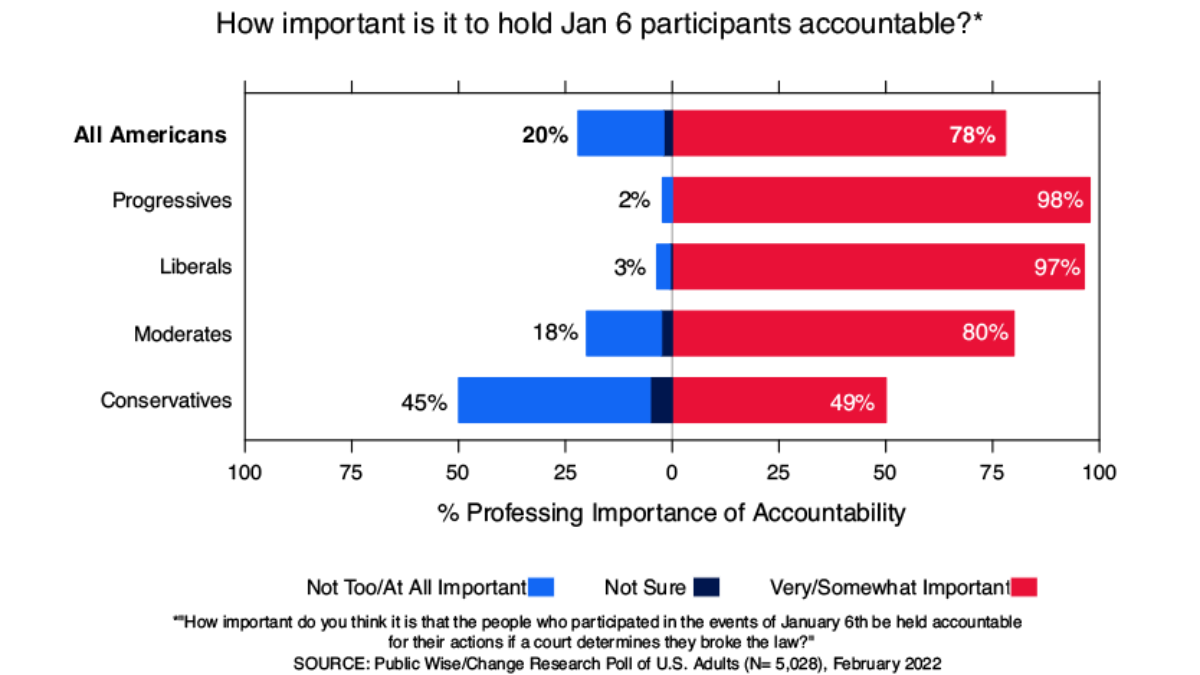
Some Anti-Establishment Attitudes Distinguish Conservatives who Don’t Want Accountability for January 6.
To understand the association between different types of anti-establishment beliefs and attitudes on January 6 accountability, we asked a series of questions capturing different kinds of anti-establishment attitudes.
- How much do you trust the news media in general?
- In your opinion, how important do you think respecting institutions and laws is to being truly American?
- In your opinion, how important do you think believing that every citizen should be able to vote in elections is to being truly American?
- How much do you agree or disagree: If elected leaders won’t protect America, the people would be justified in resorting to violent action to do it themselves, even if people could get hurt in the process?
Anti-Establishment Beliefs by Ideology
First, we wanted to examine the prevalence of these anti-establishment beliefs among conservatives as compared to other political ideologies.
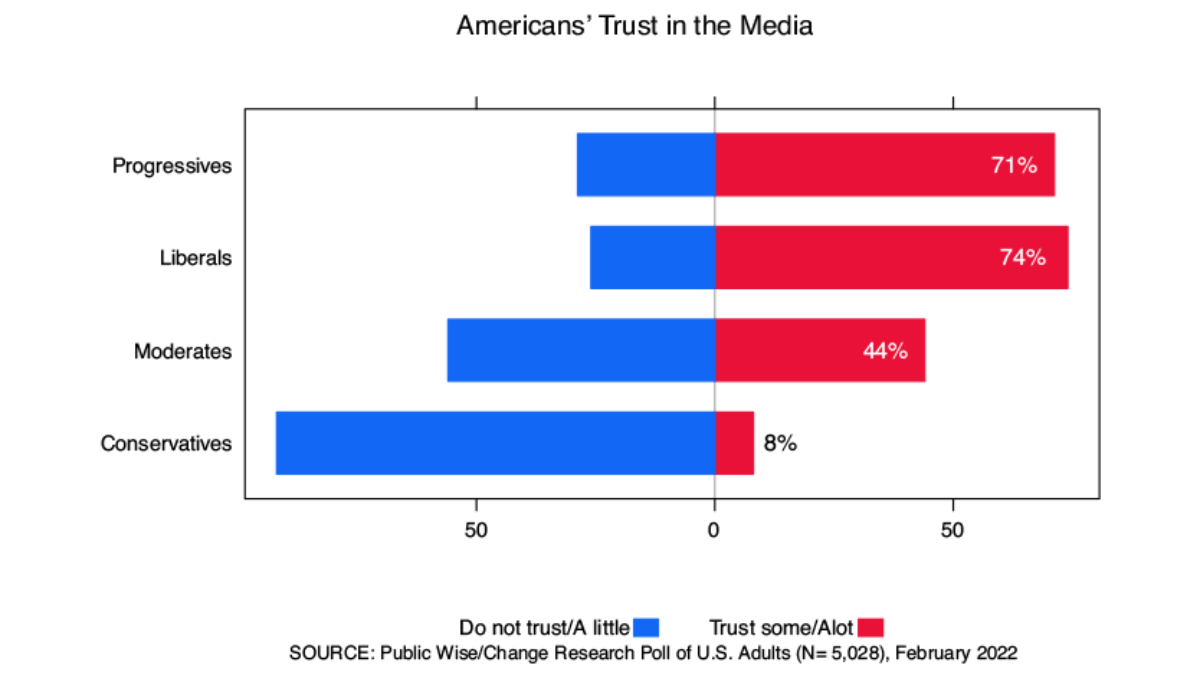
Some commentators have suggested that a lack of trust in the media may have allowed false ideas about the outcomes of the election to spread among Trump supporters. We found that trust in the media is highly politically polarized. While over two-thirds of progressives and liberals say they trust media some or a lot, just 8% of conservatives do.
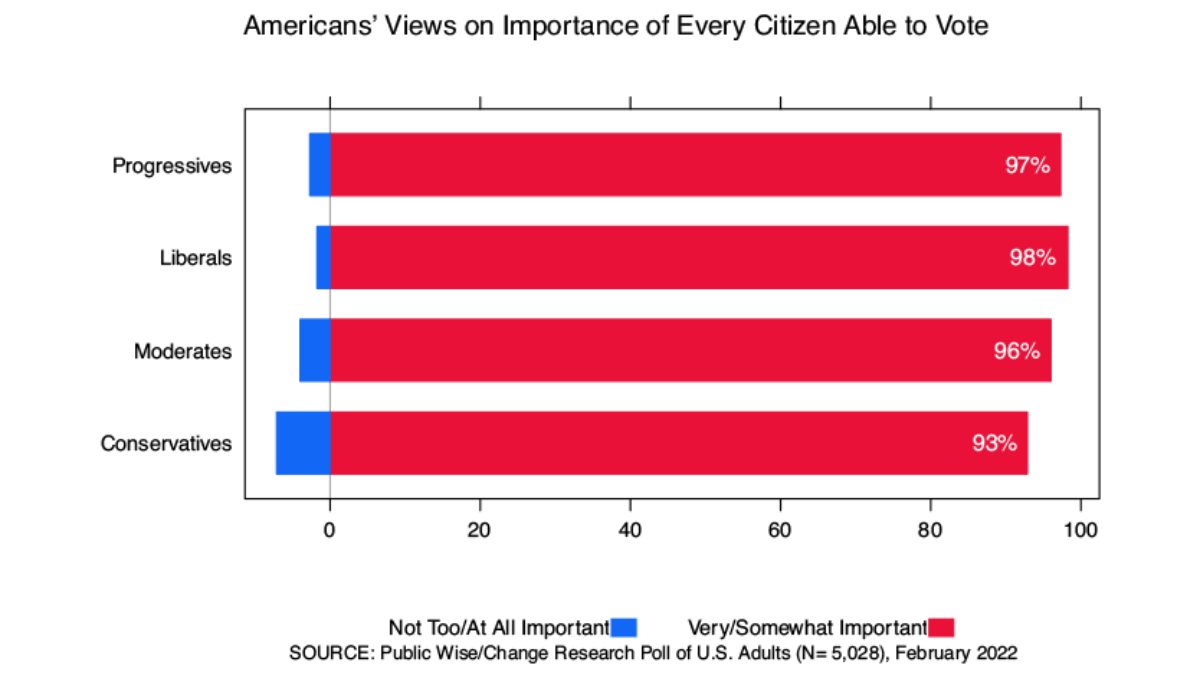
We found that the the vast majority of Americans across the political spectrum think that it is important to believe that all citizens should be able to vote, although conservatives were slightly less likely to think so.
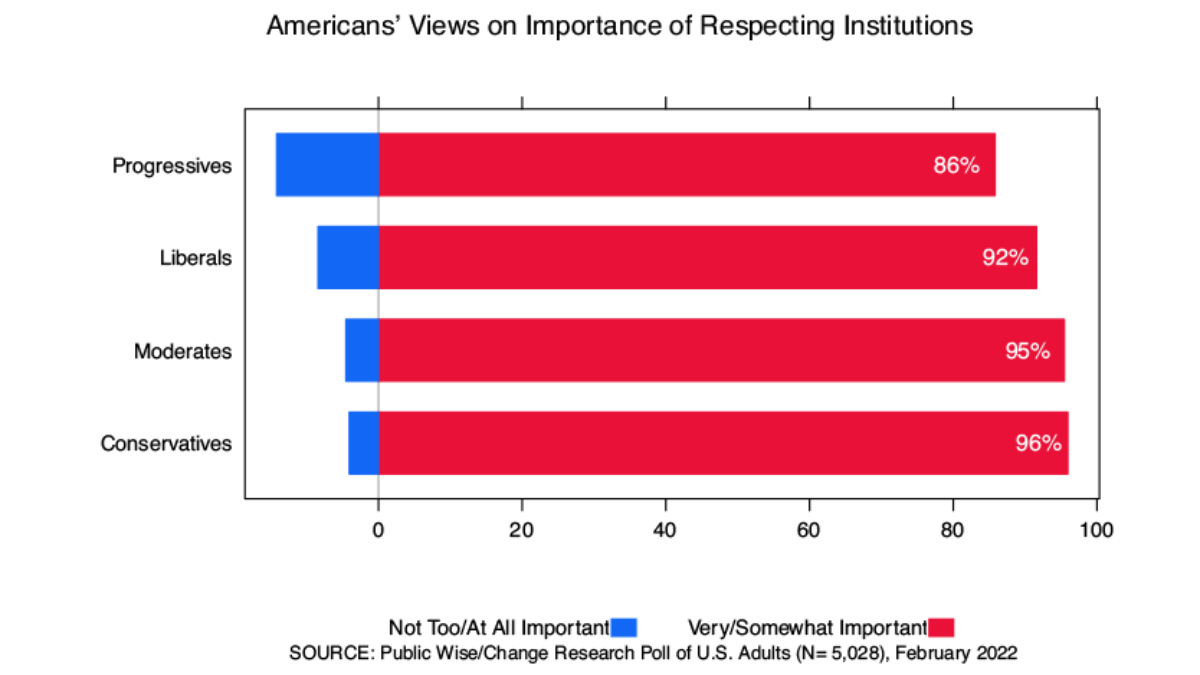
Conservatives were more likely to believe in the importance of institutions. The vast majority of Americans of all political persuasions think that respecting institutions and laws is important, but conservatives were slightly more likely to think so.
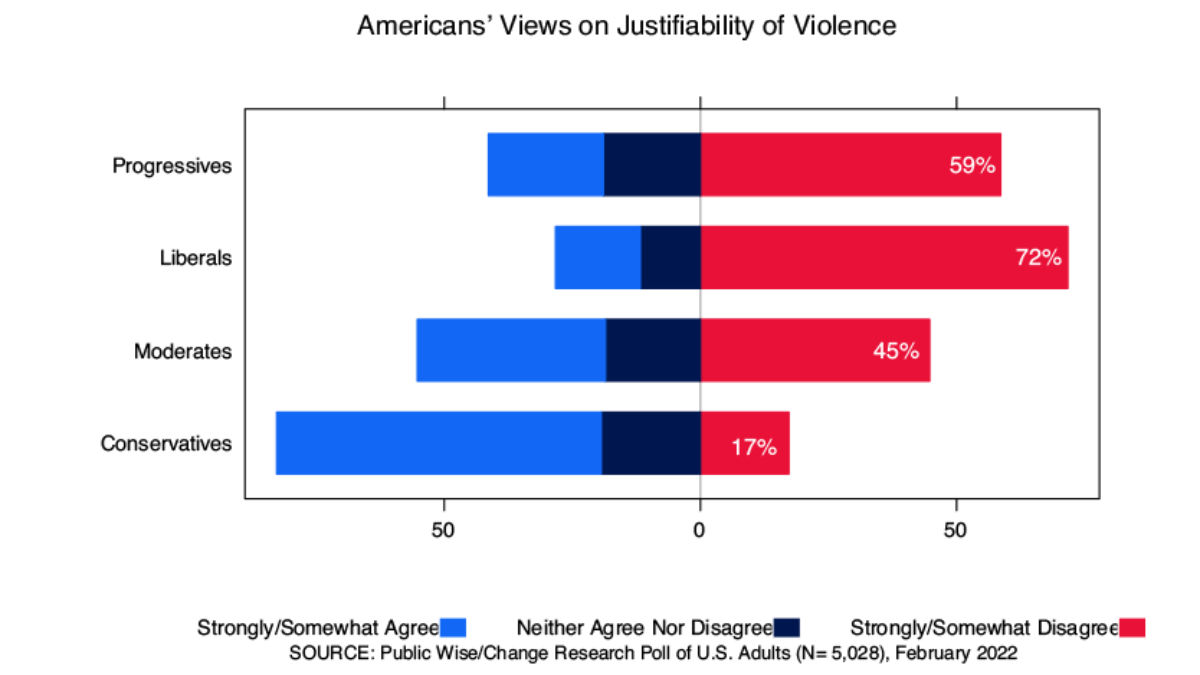
Beliefs on the justifiability of violence were highly split along ideological lines, with a majority of progressives and liberals disagreeing strongly or somewhat that violence could be justified if elected officials will not protect America. For conservations, just a small minority did not agree with the justifiability of violence.
Desire for Accountability and Anti-Establishment Beliefs
As in previous blog posts, because almost all respondents who do not think accountability is important are also self-identified conservatives, we focused our analysis on the correlation between anti-establishment ideologies and views on accountability on this sub-group of the US conservatives. The following graphs provide the breakdown of views on the importance of accountability for January 6 participants among US conservatives, according to whether or not they hold particular anti-establishment views.
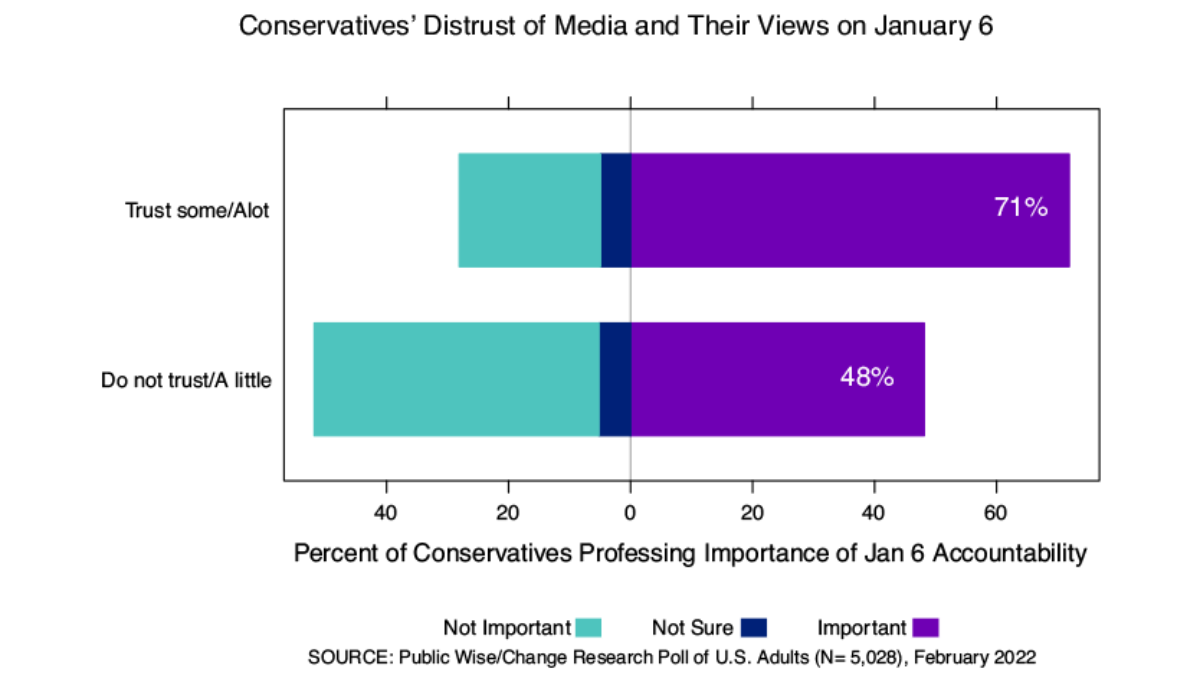
Distrust in the media was highly correlated with views on January 6th accountability among conservatives. Conservatives who trust the media were much more likely to want accountability. In our white paper, where we undertake a more technical analysis, our model confirms that this factor marks an important ideological split in the conservative movement.
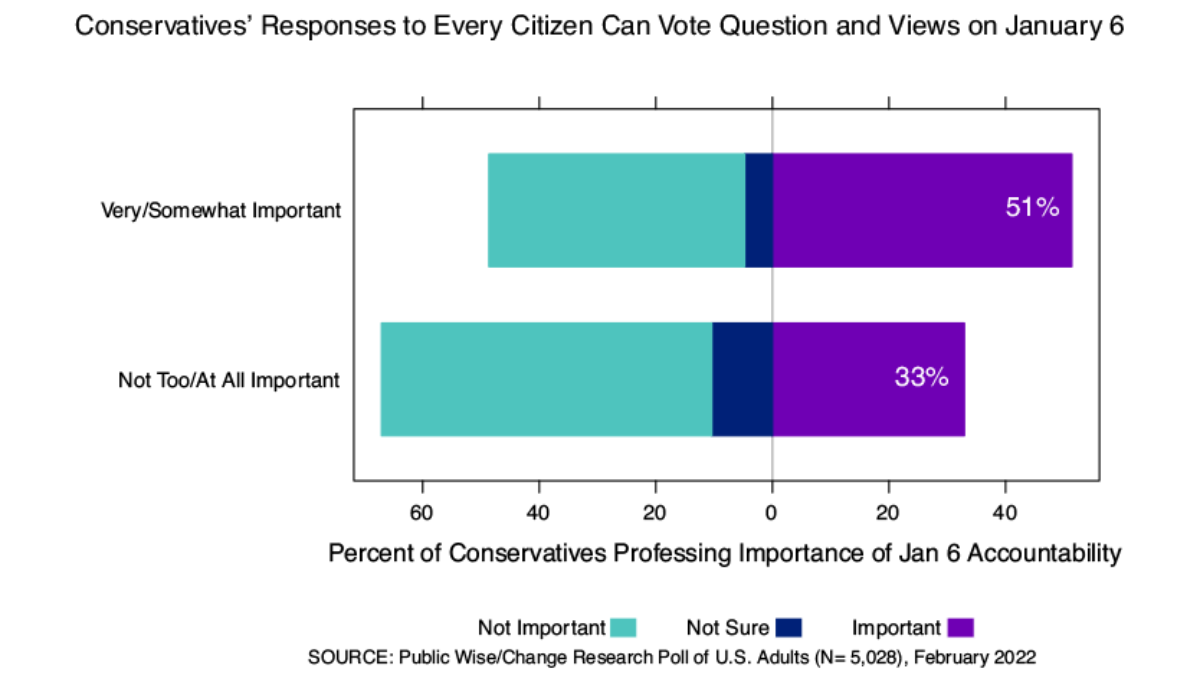
The very small minority (7%) of conservatives who thought that it was not important to believe that every citizen should be able to vote had much less desire to see accountability for January 6 participants.
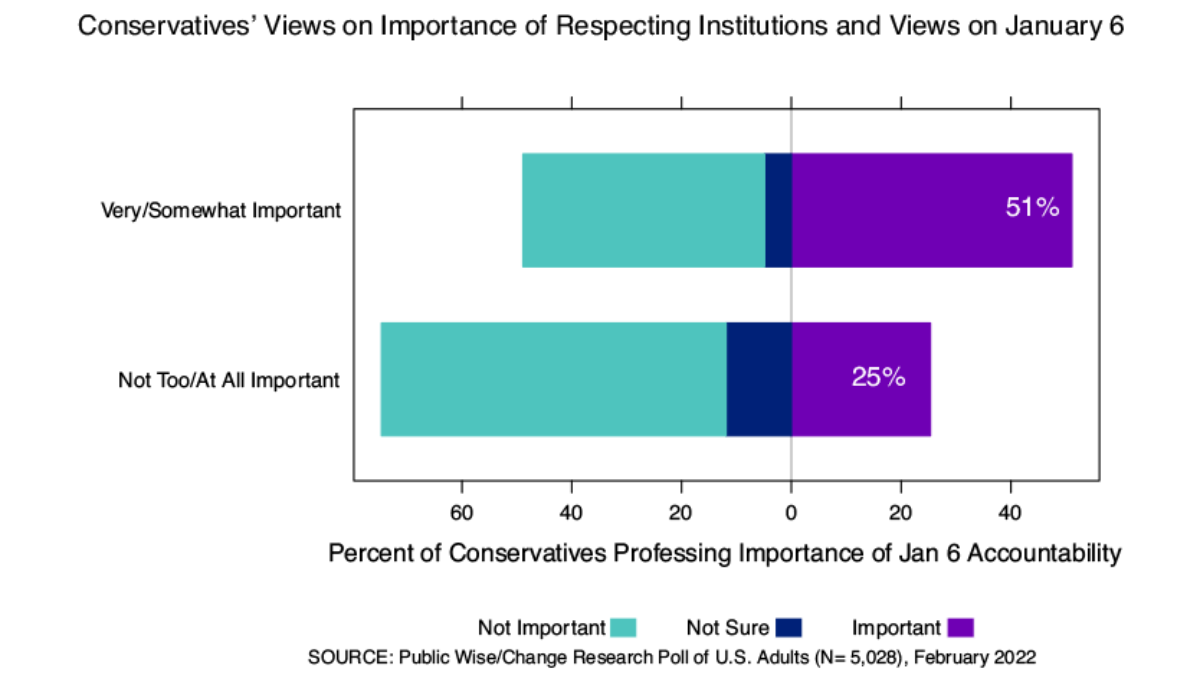
Views on respecting institutions and laws were strongly correlated with views on accountability for January 6. Only one-fourth of conservatives who did not think this is important wanted accountability. As noted above, respect for the rule of law tends to be more important for conservatives than for other political ideologies. Anti-accountability sentiments appear to be especially concentrated in the small minority of conservatives who do not place importance on institutions and laws. Our formal model confirmed the importance of this factor.
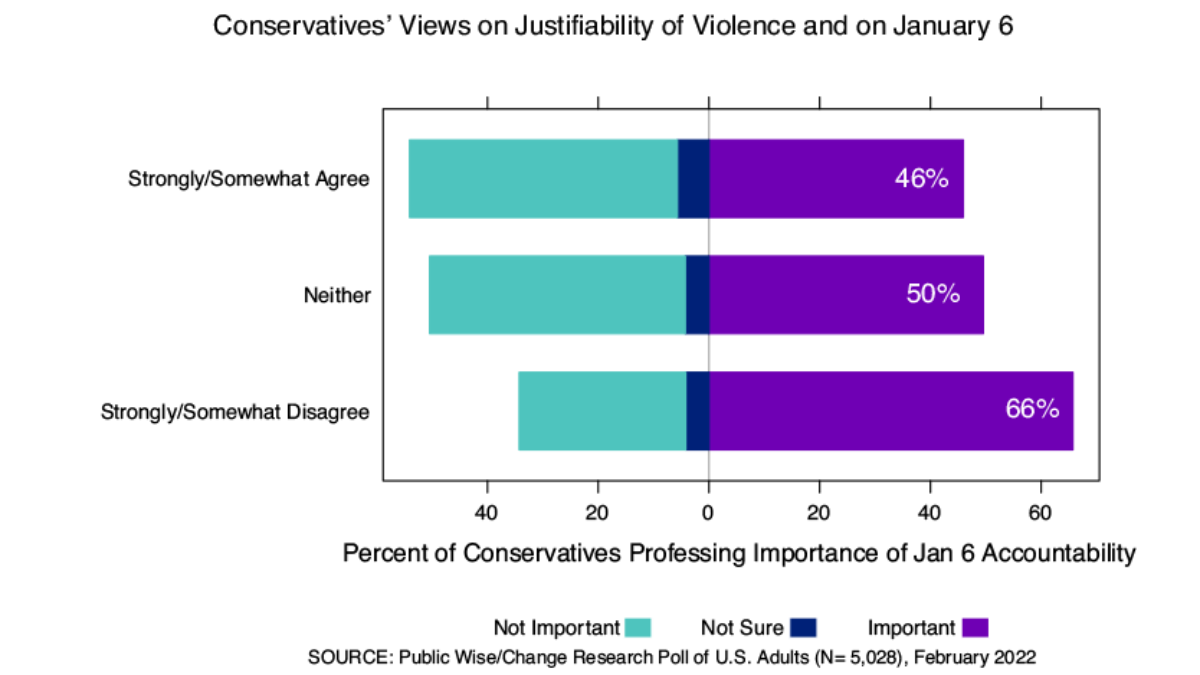
Conservatives who disagreed that violence is justifiable were much more likely to want accountability for January 6 participants. But this group constitutes just a small minority of conservatives. Our formal model found that this factor is important for accounting for conservatives’ views on January 6 accountability. Among the majority of conservatives who thought violence is justifiable, just 46% wanted accountability.
While all four variables pertaining to anti-establishment attitudes were correlated with views on January 6 accountability on their own, only three were identified as especially predictive of views on accountability in our formal model: 1) Distrust of the media; 2) Justifiability of violence; and 3) Respecting institutions and laws. That three out of four of our anti-establishment items helped explain variance in conservatives’ views on January 6 points to this being an especially important category of beliefs for understanding public opinion around the attack on the Capitol.
Notes on Missing Data
Our missing responses in the survey were not at random, but were concentrated around respondents dropping out at two politically sensitive sections of the survey. Therefore, instead of excluding them from our dataset and only using respondents who answered all relevant questions, we included these respondent dropouts as an integral part of the analysis. Because these dropouts occur before and after different relevant questions in the survey, the analyses in this post use a range of none, one, or two categories of missing responses. For a more detailed understanding of missing data in our survey, how we think about dealing with missing data, and why we decided to include it in our analysis instead of ignoring it, take a look at our post on this topic.
For a visualization of where missing responses occur in the questions relevant to the analysis in this particular blog post, see the visualization below:
Quick Links
Because those who dropped out of the survey at the QAnon questions did not go on to complete any of the other questions related to conspiracy theories, we do not know these respondents’ views for these measures. We do know that those who dropped out at the QAnon questions were disproportionately likely to self-identify as conservative.
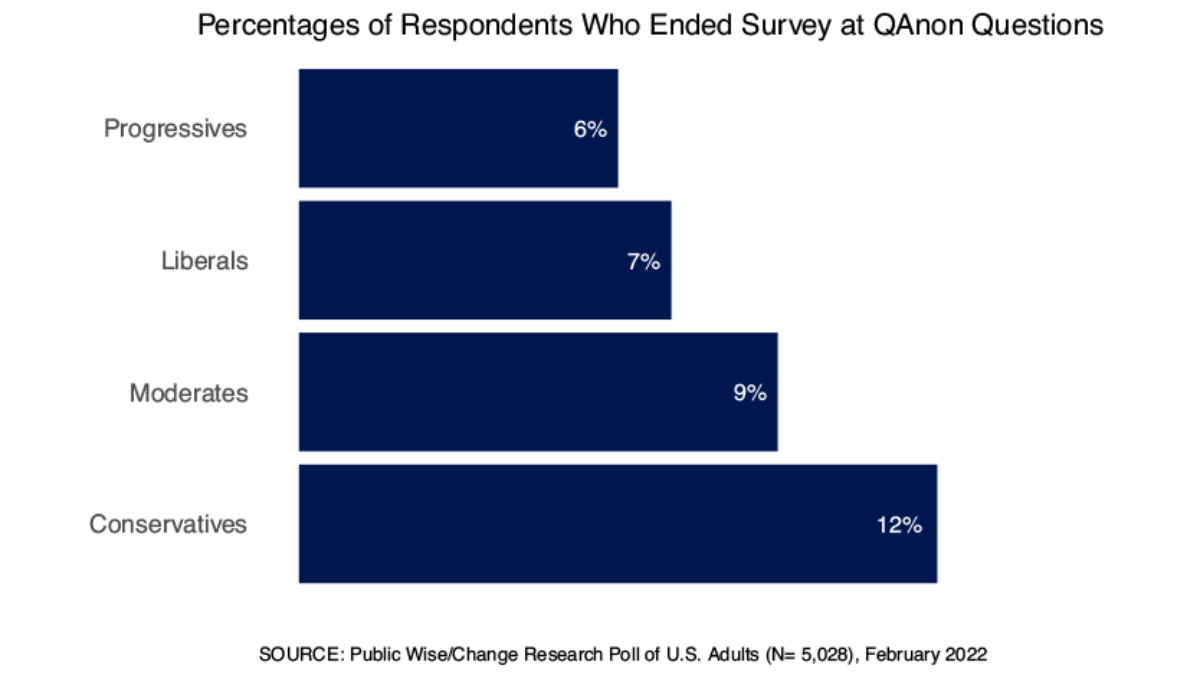
But, as can be seen below, it seems that for conservatives who dropped out of the survey at the QAnon questions, their views on accountability are comparable to conservatives who completed most of the survey.
